Wildfires in Greece: Life after the paralysis
The progress of reconstruction in the Attica region is going slowly.
Weeks after the wildfires the smell of burned wood was still in the air. Weeks after the wildfires the smell of burned wood was still in the air. Kilometre long areas of black trees and houses destroyed to its grounds in Rafina were still witnesses of the flame inferno, which was dragging through the region in the East of Athens at the end of July. According to the Earth Observation programme of the EU, Copernicus, some 3200 hectares burned — this equals an area of around 4500 football fields.
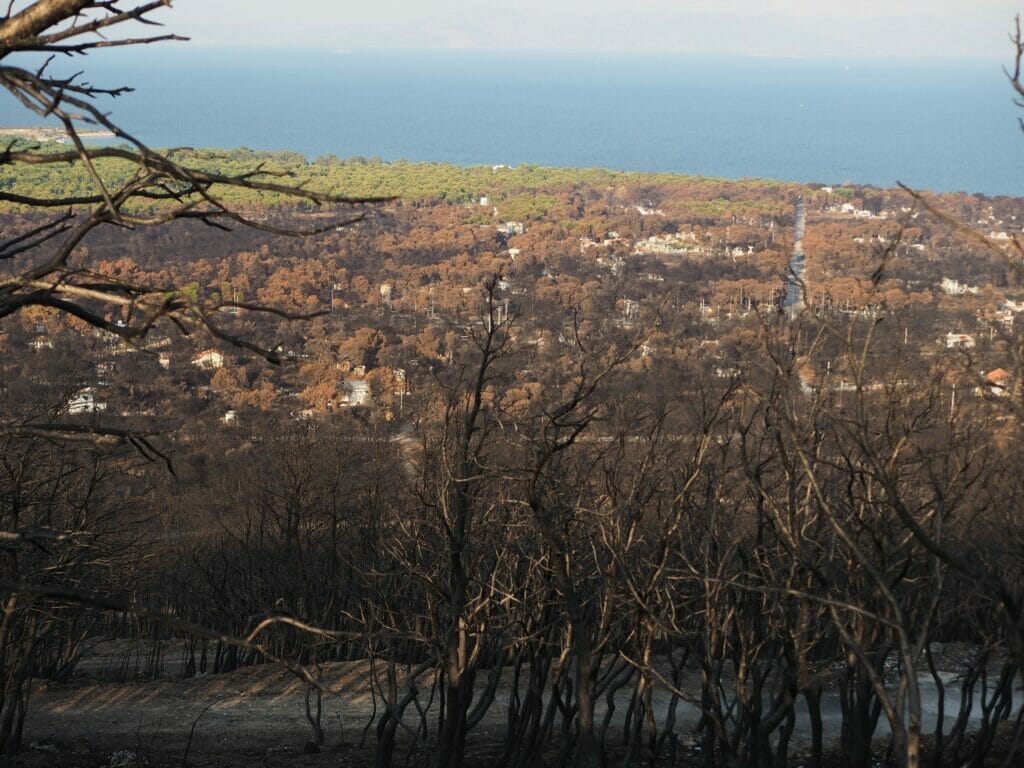
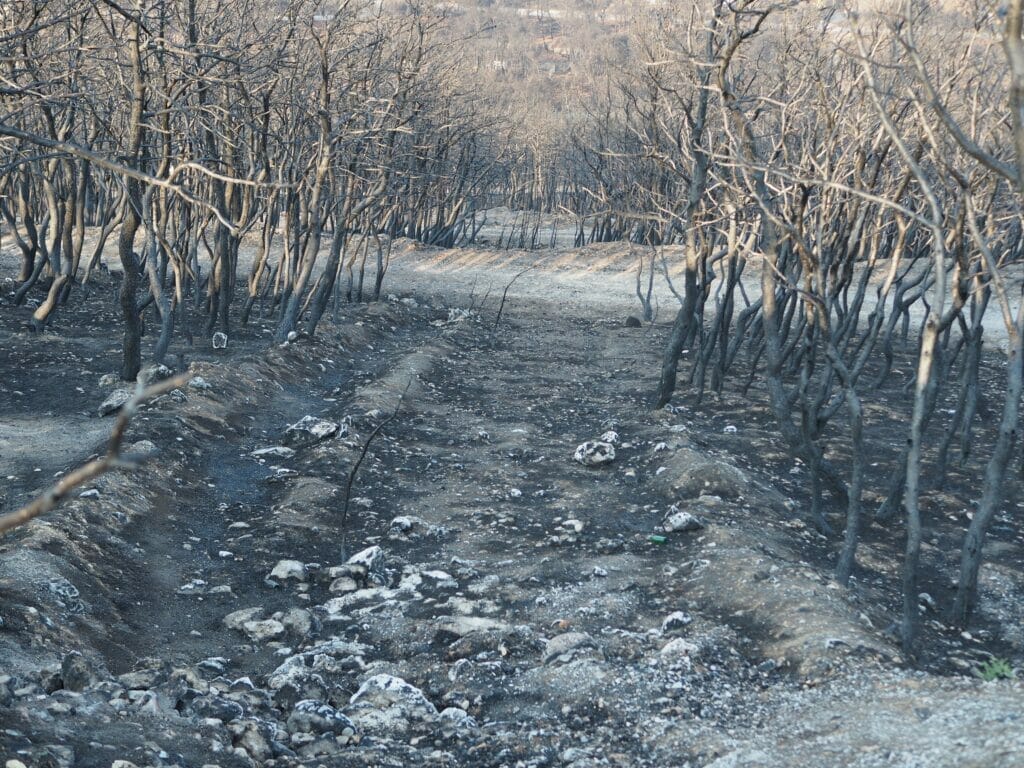
Subsequently, whole districts became unliveable. Cars guttled by fire, destroyed furniture and leftovers of belongings created a postapocalyptic atmosphere in the blocks. Straying cats and dogs were the only ones enlivening the streets. Humans came back slowly to clear the damages. Before, competent authorities recorded the whole extent and eliminated the biggest damages, removed burnt cars, took away the wood.
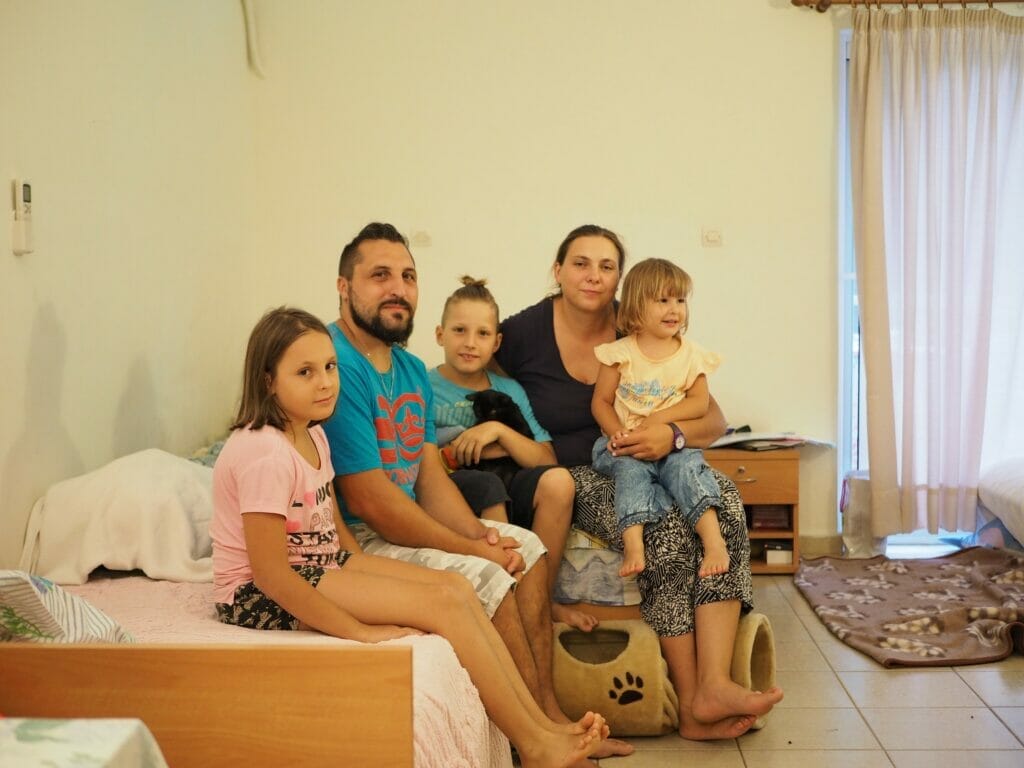
Kostas and Eleni Spiridis have lost everything in the fires. Their house is unliveable. In the past, the family lived mainly self-sufficient. The disability pension of the 39-years-old was enough for the basic needs, as beekeeper, egg seller and with small jobs the family earned some additional money. “I also did woodworks,” Kostas told in the beginning of September. Two of the three children aged between three and ten years went to school.
“I do not know how long we will stay here.”
Now, only 17 of the 63 beehives are left, the goat and parts of the rabbits and chicken survived. The dog and two of the cats did not. Eleni was able to rescue at least the cat babies. Now the family of five lives close to their old home on 25 square metres in a former military barrack, which the government opened for the victims of the wildfires. With the beds, the small kitchen plus the bathroom the room is already full. Even the dining table is only against the wall so as not to block the passage. “I do not know how long we will stay here,” Kostas Spiridis said. It was one of the most common answers, which affected people gave, when asked about their future: I do not know. “A lot is said in the village, but nothing happens,” Eleni Spiridis bemoaned. The family could not afford — the rent is too expensive nowadays. The same applied to for an insurance, which the Spiridis family like many others did not conclude. Too expensive.
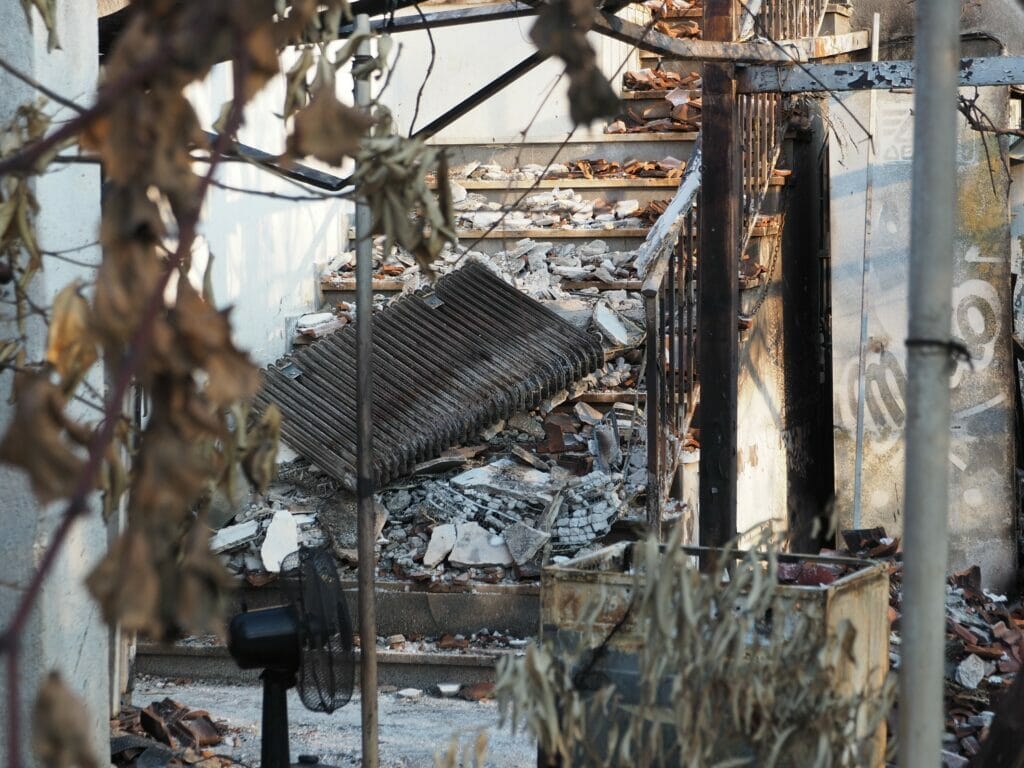
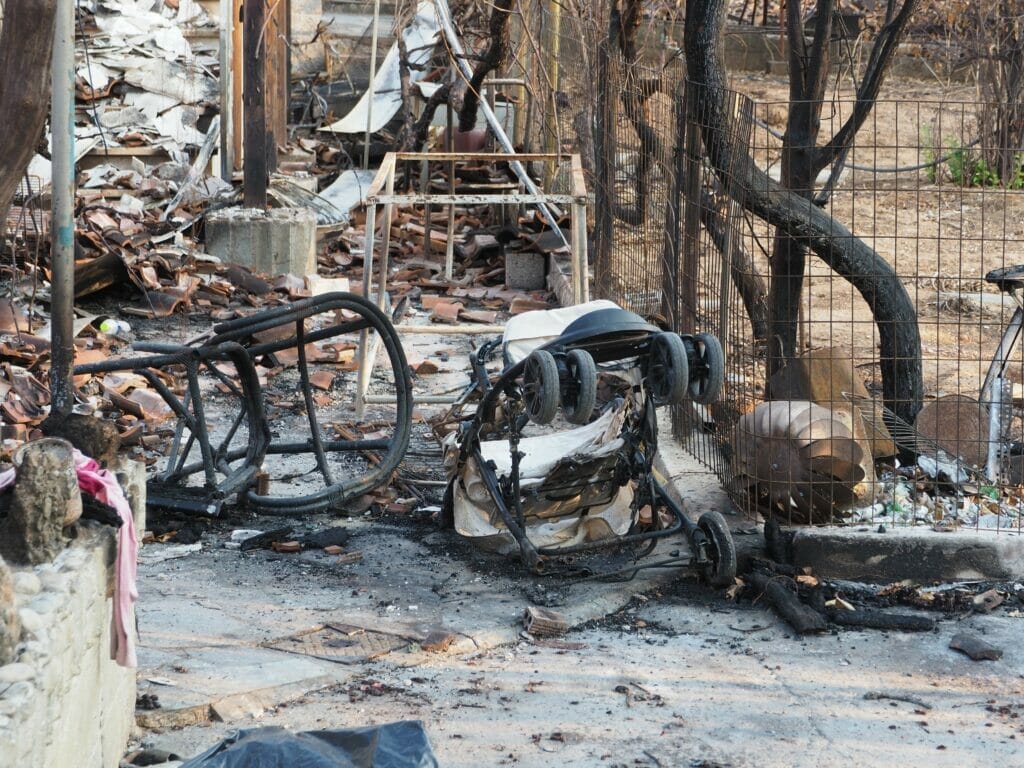
The residents of the facilities in the barracks do not have to pay for it. The authorities also provide food. A small village life evolved at the site. If the weather is good, the residents meet outside, children play at the playground. All of them connects a story of loss. But no one wants to stay for longer. It also did not make them feel more comfortable, that a tree felt on the roof of one house some weeks after the people moved it. The ones with relatives, who have some space, or with a second residency have already left the region.
State aid
State aid is provided for the affected persons. But it could take time, because the list was processed alphabetically. Even six weeks after the fires, the Spiridis family had not seen any Euro of this emergency help. Authorities informed, that all victims should get compensations. Up to 5000 Euros for example for injuries caused by the fires and 550 Euros per square metre living space. But only for the parts, which have been built legally. Buildings or extensions, which were not registered, will not be considered for it. Several affected people face to receive less money than they had actual living space.
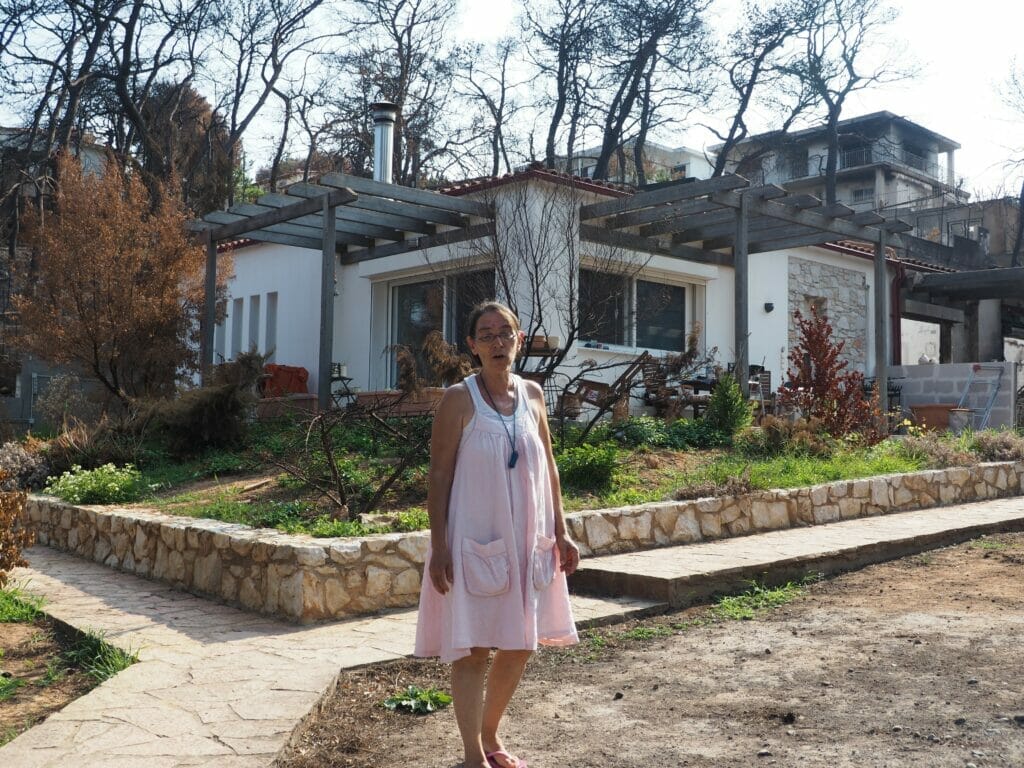
Nadia Kerasidu had blessing in disguise. Her block in Kokkino Limanaki was almost completely destroyed, like the one of the Spiridis family. Miraculously, her house was nearly unscathed. Even the garden blazing, weeks later the melted garden illumination was still stuck in the soil. From the garden shed only a few bricks are left. Surrounding houses had already collapsed or were about to fall. But Kerasidu’s house only had some rifts — apparently harmless ones. “Everything happened suddenly and within minutes, thick smoke. I took my three dogs and went to the car,” she recalled the fires. She escaped the flames largely unharmed. Not everyone was that lucky, also some of her friends were stuck in the sea for hours until they were rescued — all other ways were blocked. Kerasidu lost her equipment for her restaurant, which she is running in Athens, in the fires. Now she needs to it buy new. But bevor she can get access to the compensations, she needed a signature of her brother, who is co-owner of the house.
“I always feel dizzy and I am tired.”
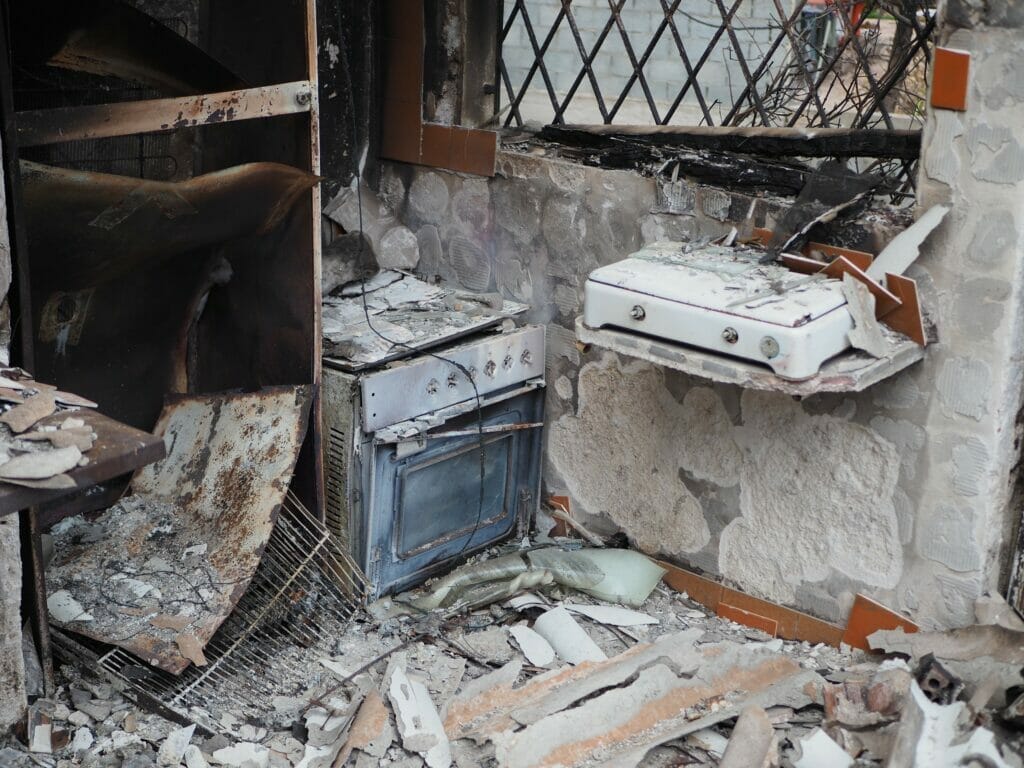
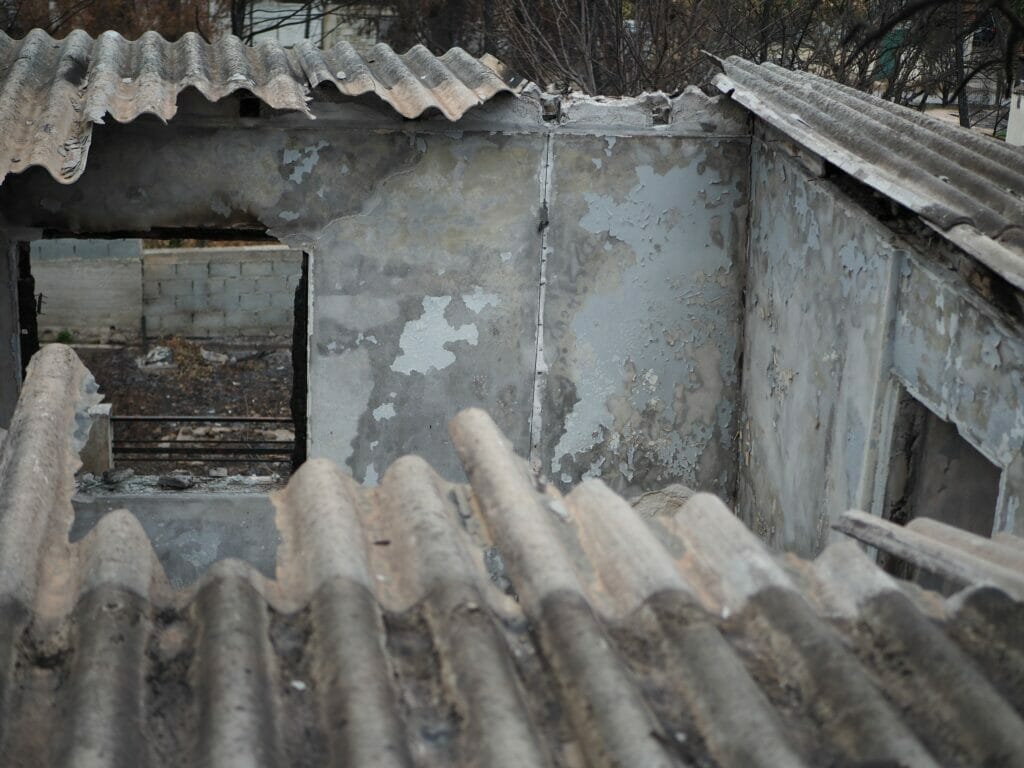
Although she can still live in her house, Nadia Kerasidu was suffering from the followings of the wildfires. “I always feel dizzy and I am tired. I think because of the oxygen,” she described. She also assumed, that one of her three dogs died due to the aftermaths of the fires. About the work of the competent authorities she said: “They are doing something, but there are many things to do. They cannot cope the mass of work.” In her case, it had been volunteers from the neighbourhood who cleared the biggest damages in the garden quickly. “The paid people came and did nothing,” she criticised.
Impact on the nature
The wildfires also had a considerable impact on the nature. But like the destroyed blocks, the landscapes can get rid of their dully appearance again. “A typical Mediterranean ecosystem will heal its wounds, sooner or later,” Elias Tziritis, local action coordinator of the World Wide Fund For Nature (WWF) in Greece. The Attica region hosts mainly pine trees maquis scrublands and fir trees in higher altitudes*. Fires impacted the ecosystem there quite often. Subsequently, the vegetation began a dynamic process of natural regeneration. Hence, only the fir forests needed a reforestation. “Safeguarding the region from any land use changes, illegal grazing and soil erosion is highly required,” Tziritis stressed. Because like repeated wildfires it lead to desertification and prevented a natural regeneration.
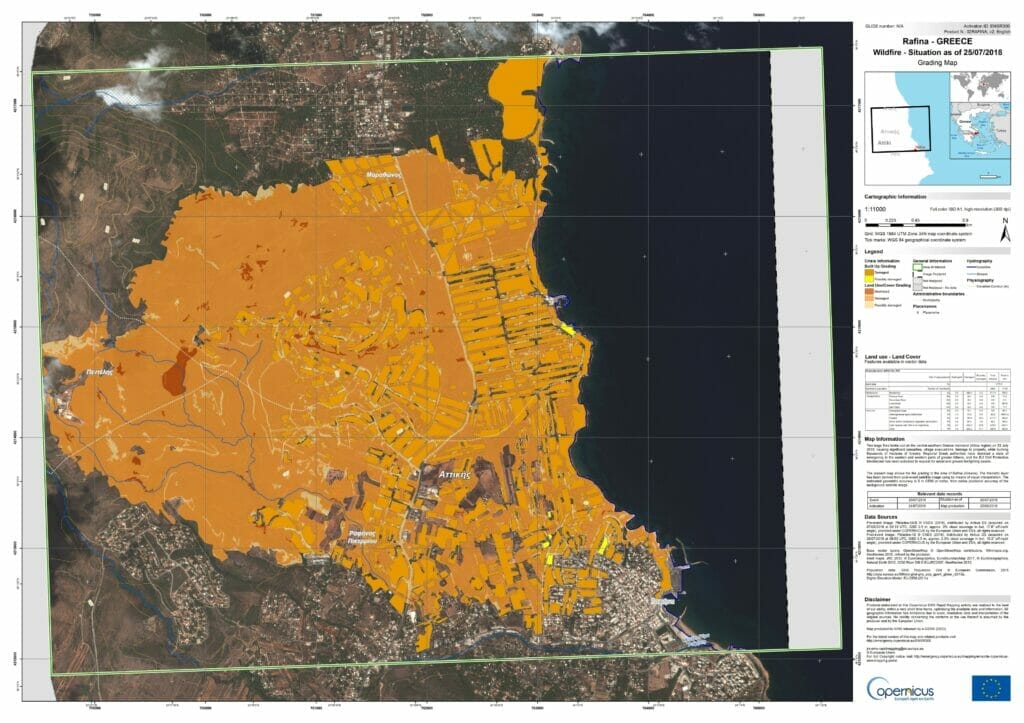
For the animals in the region, was different. Mammals and birds could often escape the fires. But reptiles were mainly the direct victims of such happenings. “For animals the main problem is habitat lose in an area like Attica which is high populated and wildlife habitats get fewer every year,” the WWF expert said. It depended on several factors, how the animal populations develop after natural disasters. The experience from other, similar wildfires was, that on the long-term this can even have a positive impact sometimes, for example for red deers. They had been able to use the new grass lands. On the other side, golden jackals had been forced to immigrate to other areas. “So it depends of the type of the habitat lost and how adjustable are the animals to severe and sudden habitat changes, as fire,” Tziritis concluded.
The smell vanishs, the memories remain
Weeks after the fires the remedy of the damages is slow in the Attica region. Months will pass, until the people will be able to go back into their homes — at least. Repeatedly it can be heard, that many do not want to live in their villages anymore. Going back to the place, where dozens of people died, hundreds were injured? This is not conceivable for everyone. The nature may recover and the buildings will be rebuilt again — the memories and traumas remain. And it will take more time, until the smell of burned wood evaporates out of the forests.
This will not remain the last disaster in Greece for sure. Floods, fires, earthquakes — the people and animals must deal with such happenings every year again. In the case of wildfires, climate change directly lead to an increased danger, the WWF expert said. “It will make the situation even more difficult in the following years,” Elias Tziritis predicted. More fire trucks and firefighting airplanes alone would not be sufficient to face the threat appropriately. “Prevention includes all the actions taken before a wildfire even breaks out,” he underlinded. Hence, the citizens needed to be sensitized and fires forbidden — the fire fighters substantiated the cause of the wildfires with the inappropriate burning of wood. On a local level, Tziritis demanded a statistical analysis of the forest fires, their starting points and the times and days of elevated risk for each area: “Analyzing this data, when done on an annual basis, can determine the measures that must be taken by competent authorities in order to properly readjust their planning.” Forest sheltered firebreaks or pruning were also preventive measures, to reduce the extent of fires.
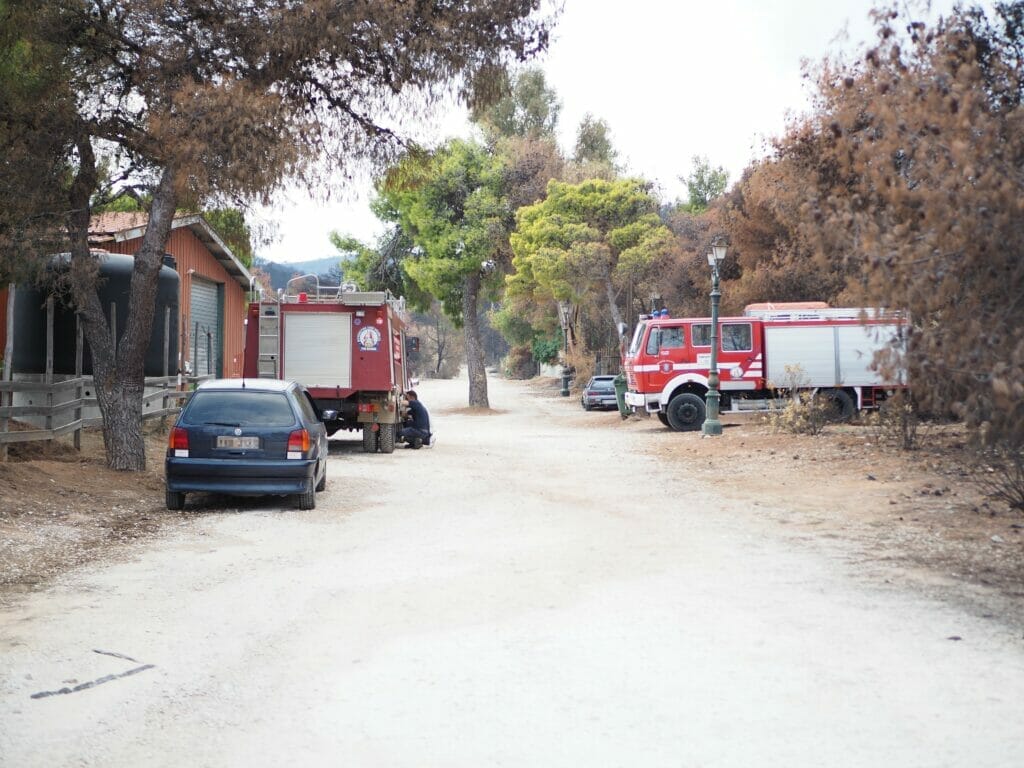
Last but not least, a fire protection plan is needed at the local level, Tziritis concluded. Not only the environment would benefit from this but also the citizens. The competent authorities as well as the institutions were helplessly overstrained with the wildfires this year. In the following of the chaotic response, the heads of police and fire brigade as well as Nikos Toskas as responsible minister had to resign.
*Edited on 23.10.2018.
Vorgeschlagene Beiträge
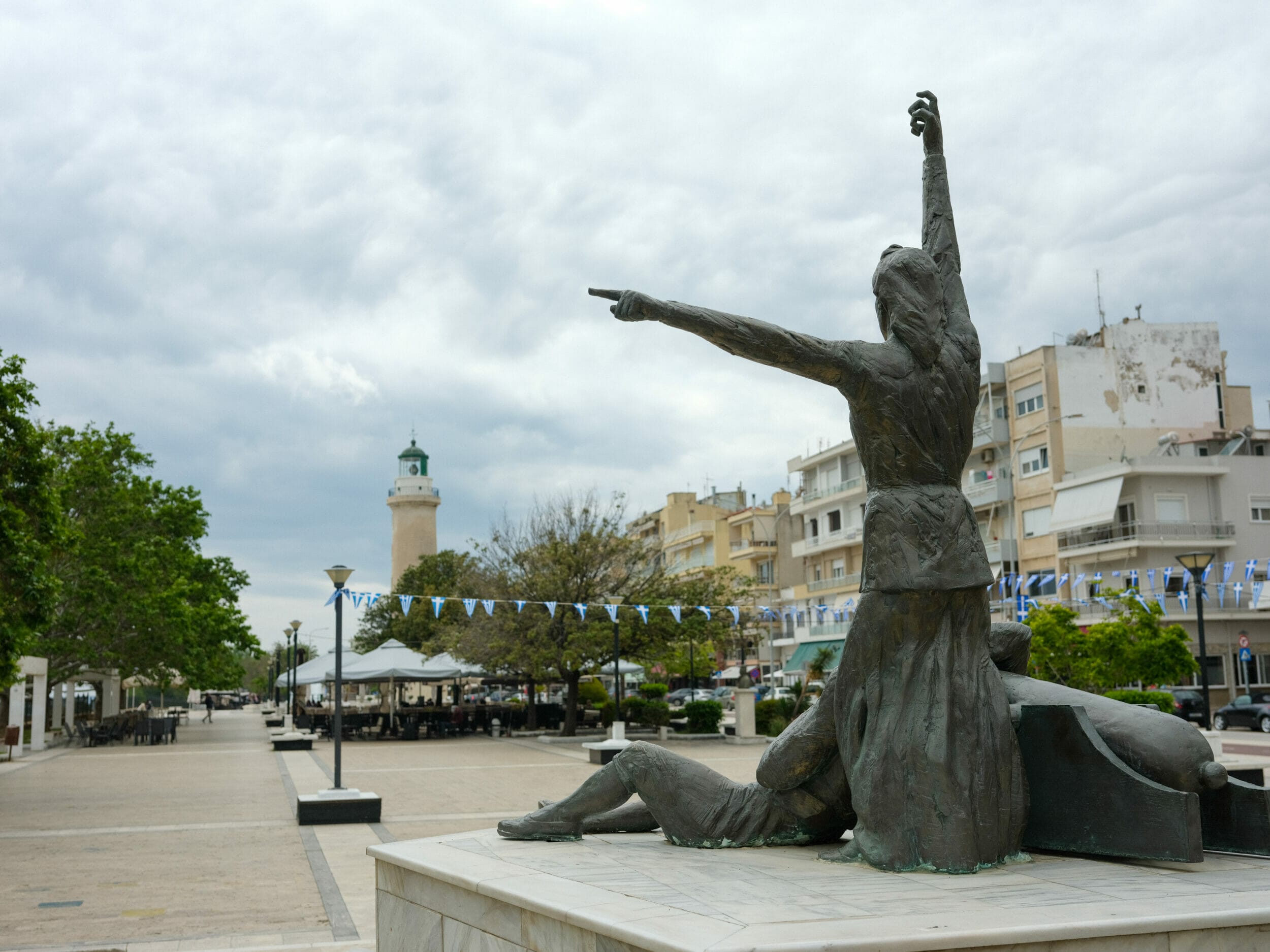
Contrast to Türkiye: Greeks do not expect much from elections
- Autor:in
- Mehr Beiträge


Leave a Reply
You must be logged in to post a comment.